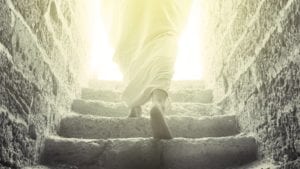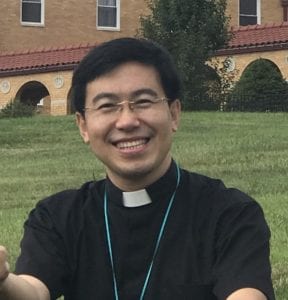
Resurrection of the dead
The Sadducees were an aristocratic sect which opposed the Pharisees. Not only did the Sadducees reject the oral tradition upheld by the Pharisees, they also denied the doctrine of the afterlife. The practice of a man taking the wife of his deceased and childless brother in order to raise descendants for him was intended to prevent a man’s name and family from dying out. However, by New Testament times, this custom was, for the most part, no longer followed, and so the question which the Sadducees posed to Jesus was mainly an academic exercise. The Sadducees thought that a definite answer was impossible and that the impossibility of an answer would prove the impossibility of the resurrection of the dead.
The Sadducees failed to realize that the next life will be essentially different from this life, and so Jesus tells them that marriage will no longer apply to those deemed worthy of the resurrection of the dead. In addition, since the Sadducees accepted only what was written in the Pentateuch, Jesus tells them that the resurrection of the dead had already been implied in the Book of Exodus. Using the passage in which God revealed His Name to Moses, Jesus points out that the statement “I am the God of Abraham and the God of Isaac and the God of Jacob” (Ex3:6) meant that God is not the God of the dead, but of the living. All three patriarchs may no longer be alive on earth, but they continue to exist in the immortality of their souls.
As Catholics, we believe that God is the God of the living, and we have a much fuller understanding of the afterlife in our belief in the Communion of Saints, which is the unity of all the faithful in Christ. Together, we form the One Church, we who are here on earth, with those who are already in heaven, and those who are undergoing purification in Purgatory. The bond among the faithful is so strong that in his First Letter to the Corinthians, St. Paul says that “if one member suffers, all suffer together; and if one member is honored, all rejoice together!” (1Cor12:26). Simply put, the good done by one contributes to the benefit of all, and the sin committed by one, no matter how personal it may seem, somehow affects the whole Church. Our actions have a far more reaching effect that we can ever realize, and because of that, we must be mindful that our choices in life be guided through our faith and our love for God and neighbor.

This year’s Advent Retreat (in Chinese) will be on December 7-8. Fr. Bill has invited Fr. Jianping Li to conduct the retreat. Fr. Li is from the Church of the Transfiguration in Manhattan, New York. The theme of the Advent retreat is “From Nazareth to Bethlehem – Listening to Matthew and Luke about Emmauel.” The Advent retreat consists of three parts: on Saturday, December 7, the morning session is from 10:00 am to 12:00 pm, and the afternoon session is from 2:00 pm to 4:00 pm. On Sunday, December 8, Fr. Li will share a reflection from 12:30 pm to 1:30 pm. If you plan to stay for lunch on Saturday, please sign up with Daisy or Agnes, so that they can plan how many sandwiches to order. We will also invite Fr. Li for dinner on Saturday evening at 5:30 pm. If you plan to join us, please sign up with Xiu Hong Chen on or before November 28, Thanksgiving Day, so that she can book reservations accordingly.